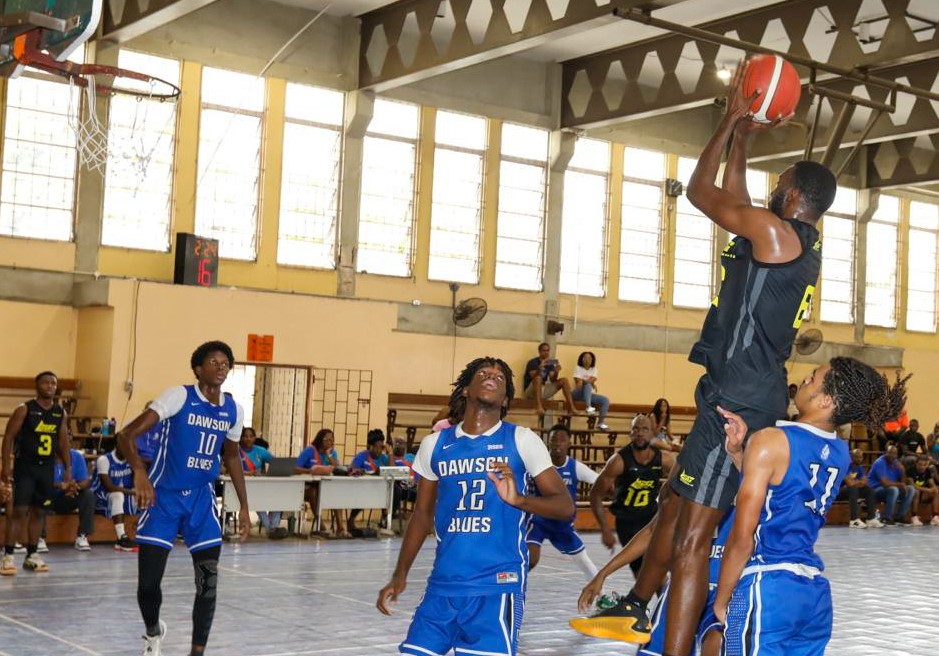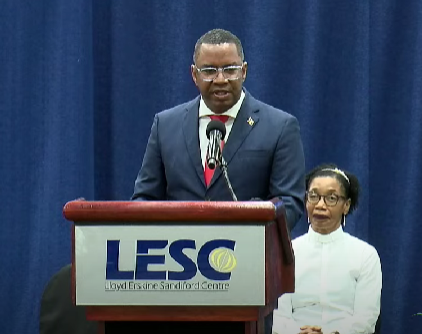UK Chancellor Denies Reparations for Transatlantic Slave Trade: Commonwealth Leaders Push for 'Meaningful Conversation'

October 24, 2024
UK Chancellor Rachel Reeves states the UK will not pay reparations for the transatlantic slave trade, despite Commonwealth leaders pushing for discussions on the issue at the summit. Prime Minister Starmer focuses on current challenges like climate change.
The UK is “not going to be paying out” reparations for the transatlantic slave trade, Chancellor Rachel Reeves has told the BBC.
Her comments come as diplomatic sources told the BBC that the Commonwealth heads of government are preparing to begin a “meaningful conversation” about an issue which could potentially mean the UK owing billions of pounds.
The chancellor said she understood why Commonwealth leaders would be making such demands, but it was not something the UK government would commit to.
UK Prime Minister Sir Keir Starmer, who is attending the summit, said he wanted to discuss current challenges, especially climate change, rather than issues of the past.
“That’s where I’m going to put my focus – rather than what will end up being very, very long endless discussions about reparations,” he said.
“Of course slavery is abhorrent to everybody; the trade and the practice, there’s no question about that. But I think from my point of view… I’d rather roll up my sleeves and work… on the current future-facing challenges.”
The chancellor reiterated that message in an interview with the BBC, saying: “We’re not going to be paying out the reparations that some countries are speaking about.
“I understand why they make those demands but that’s not something that this government is doing.”
Commonwealth leaders at the Samoa summit are expected to defy the UK and debate ways of securing reparations for historical slavery. At its height, Britain was the world’s biggest slave-trading nation.
Downing Street insists the issue is not on the agenda for the summit of 56 Commonwealth countries.
King Charles is in Samoa for a four-day visit and is due to formally open the summit later with a speech paying tribute to his mother, the late Queen Elizabeth II, and the role the Commonwealth played in her life.
The King will say how “all nations are equal in this unique and voluntary association” which “is committed to developing free and democratic societies”, and will also speak of the “existential threat” of climate change and its impact on Commonwealth nations.
He will say that the Commonwealth, thanks to its scale and diversity – representing a third of humanity – can “discuss the most challenging issues with openness and respect”, and also speak to the importance of recognising and understanding the path of history, and where that may have given rise to contemporary challenges.
In the run-up to this year’s summit, there have been growing calls from Commonwealth leaders for the UK to apologise and make reparations worth for the country’s historic role in the slave trade.
A report published last year by the University of West Indies – backed by Patrick Robinson, a judge who sits on the International Court of Justice – concluded the UK owed more than £18tn in reparations for its role in slavery in 14 Caribbean countries.
Frederick Mitchell, foreign minister of the Bahamas, believes the UK could change its stance and he told BBC Radio 4’s Today programme: “Once you broach the subject it may take a while for people to come around but come around they will.”
Reparatory justice for slavery can come in many forms, including financial reparations, debt relief, an official apology, educational programmes, building museums, economic support, and public health assistance.
On a visit to Kenya last year, the King expressed the “greatest sorrow and regret” over the “wrongdoings” of the colonial era, but stopped short of issuing an apology, which would have required the agreement of ministers.
Mr Mitchell told the Commonwealth gathering: “It’s a simple matter – it can be done, one sentence, one line.”
He said to the BBC: “The word is apologise, that’s the word.”
Asked how much reparations should amount to, he said it was not just a matter of money but of “respect, acknowledging the past was a wrong that needs to be corrected”.
He said member countries “want the conversation to start” but “there appears to be even a reluctance to have the conversation”.
Earlier, a UK government spokesperson said: “Reparations are not on the agenda for the Commonwealth Heads of Government meeting. The government’s position has not changed – we do not pay reparations.
“We are focused on using the summit at [the Commonwealth Heads of Government Meeting] to discuss the shared opportunities which we can unlock across the Commonwealth – including securing more economic growth.”
It is understood the Downing Street position – that reparatory justice is not on the agenda – while technically correct, has angered some Caribbean ministers when it was obvious the issue would be discussed at the summit.
Some non-Caribbean countries are not unsympathetic towards the British position and want the summit to focus more on existing challenges – such as climate change, which is adversely affecting many Commonwealth countries, about half of whom are small island states.
But all three candidates hoping to be elected this weekend as the next secretary general of the Commonwealth – Shirley Botchwey of Ghana, Joshua Setipa of Lesotho and Mamadou Tangara of Gambia – have made clear they support reparatory justice. (BBC News)


